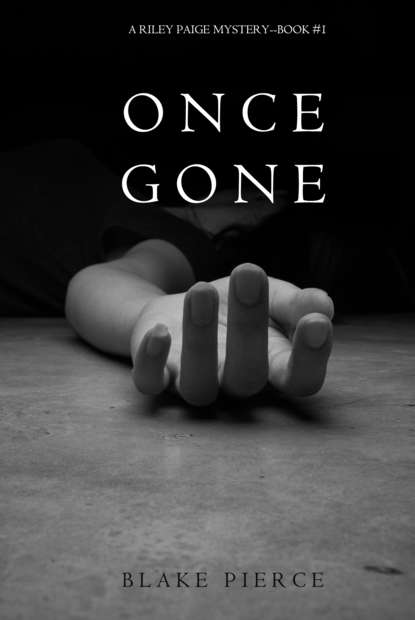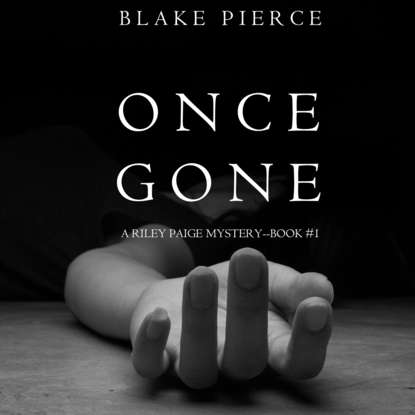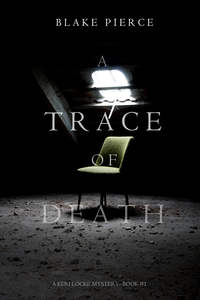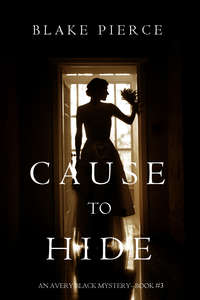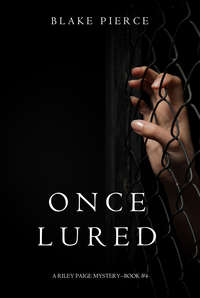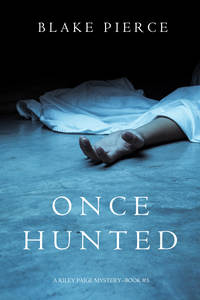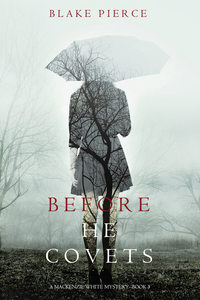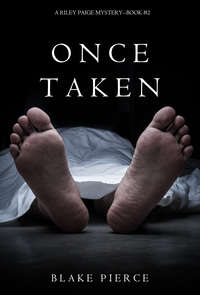
Полная версия
Once Pined
“I can’t do it,” Riley said. “Not right now.”
She turned toward Bill.
“You know what I’m dealing with,” she said.
“I know, I was just hoping …” he said, with an imploring expression in his eyes.
It was time to find out what was the matter.
“What’s the case?” Riley asked.
“There have been at least two poisonings in Seattle,” Meredith said. “It appears to be a serial case.”
At that moment, Riley understood why Bill was feeling shaken. When he was still a boy, his mother had been poisoned to death. Riley didn’t know any of the details, but she did know that her murder had been one of the reasons he had become an FBI agent. It had haunted him for years. This case opened up old wounds for him.
So when he’d told her he needed her on the case, he’d really meant it.
Meredith continued, “So far, we know of two victims – a man and a woman. There may have been others, and there may be others still to come.”
“Why are we being called in?” Riley asked. “There’s an FBI field office right there in Seattle. Can’t they handle it?”
Meredith shook his head.
“The situation there is pretty dysfunctional. It seems that the local FBI and the local police can’t agree on anything about this case. That’s why you’re needed, whether you’re wanted or not. Can I count on you, Agent Paige?”
Suddenly, Riley’s decision seemed perfectly clear. In spite of her personal problems, she was really needed on this job.
“Count me in,” she finally said.
Bill nodded and breathed an audible sigh of relief and gratitude.
“Good,” Meredith said. “You’ll both fly out to Seattle tomorrow morning.”
Meredith drummed his fingers on the table for a moment.
“But don’t expect a cozy welcome,” he added. “Neither the cops nor the Feds will be happy to see you.”
CHAPTER SIX
Riley dreaded taking Jilly to her first day at her new school almost as much as she’d dreaded some cases. The teenager was looking rather grim, and Riley wondered if she might even might make a scene at the last moment.
Is she ready for this? Riley kept asking herself. Am I ready for this?
Also, the timing seemed unfortunate. It worried Riley that she had to fly off to Seattle this morning. But Bill needed her help, and that decided the matter as far as she was concerned. Jilly had seemed all right when they had discussed the matter at home, but Riley really didn’t know what to expect now.
Fortunately, she didn’t have to take Jilly to school alone. Ryan had offered to drive, and Gabriela and April also came along to offer moral support.
When they all got out of the car in the school parking lot, April took Jilly by the hand and trotted along with her straight toward the building. The two slender girls were both wearing jeans and boots and warm jackets. Yesterday Riley had taken them shopping and let Jilly choose a new jacket, along with a bedspread, posters, and some pillows to personalize her bedroom.
Riley, Ryan, and Gabriela followed behind the girls, and Riley’s heart warmed as she watched them. After years of sullenness and rebellion, April suddenly seemed incredibly mature. Riley wondered if maybe this was what April had needed all along – someone else to take care of.
“Look at them,” Riley said to Ryan. “They’re bonding.”
“Wonderful, isn’t it?” Ryan said. “They actually look kind of like sisters. Is that what drew you to her?”
It was an interesting question. When she’d first brought Jilly home, Riley had mostly been struck by how different the two girls were. But now she was becoming more and more aware of resemblances. True, April was the paler of the two, with hazel eyes like her mom, while Jilly had brown eyes and an olive complexion.
But right now, as the two heads of dark hair bounced along together, they did seem very much alike.
“Maybe so,” she said, answering Ryan’s question. “I didn’t stop to think about it. All I knew was that she was in serious trouble, and maybe I could help.”
“You may very well have saved her life,” Ryan said.
Riley felt a lump in her throat. That possibility hadn’t occurred to her and it was a humbling thought. She was both exhilarated and terrified by this feeling of newfound responsibility.
The whole family went straight to the guidance counselor’s office. Warm and smiling as always, Wanda Lewis greeted Jilly with a map of the school.
“I’ll take you straight to your homeroom,” Ms. Lewis said.
“I can see this is a good place,” Gabriela told Jilly. “You’ll be fine here.”
Now Jilly looked nervous but happy. She hugged them all, then followed Ms. Lewis down the hall.
“I like this school,” Gabriela told Ryan, Riley, and April on the way back to the car.
“I’m glad you approve,” Riley said.
She meant it sincerely. Gabriela was much more than a housekeeper. She was a true member of the family. It was important that she feel good about family decisions.
They all got into the car, and Ryan started the engine.
“Where to next?” Ryan asked cheerfully.
“I’ve got to get to school,” April said.
“Then home right after that,” Riley said. “I’ve got a plane to catch in Quantico.”
“Got it,” Ryan said, pulling out of the parking lot.
Riley watched Ryan’s face as he drove. He looked really happy – happy to be a part of things, and happy to have a new member of the family. He hadn’t been like this through most of their marriage. He really did seem like a changed man. And at moments like now, she felt grateful to him.
She turned and looked at her daughter, who was in the back seat.
“You’re handling all of this really well,” Riley said.
April looked surprised.
“I’m putting a lot into it,” she said. “Glad you noticed.”
For a moment Riley was taken aback. Had she been ignoring her daughter out of concern for getting their new family member settled in?
April was quiet for a moment, then said, “Mom, I’m still glad you brought her home. I guess it’s all more complicated than I thought it would be, having a new sister. She’s had an awful time and sometimes she isn’t easy to talk to.”
“I don’t want to make this hard on you,” Riley said.
April smiled weakly. “I was hard on you,” she said. “I’m tough enough to deal with Jilly’s problems. And the truth is, I’m beginning to enjoy helping her. We’ll be fine. Please don’t worry about us.”
It eased Riley’s mind that she was leaving Jilly in the care of three people she felt sure she could trust – April, Gabriela, and Ryan. All the same, it bothered her that she had to be away right now. She hoped it wouldn’t be for long.
*The ground dropped away as Riley looked out the window of the small BAU jet. The jet climbed above the clouds for the flight to the Pacific Northwest – nearly six hours. In just a few minutes, Riley was watching the landscape rolling beneath them.
Bill was sitting next to her.
He said, “Flying across the country like this always makes me think of long ago, when people had to walk or ride horses or wagons.”
Riley nodded and smiled. It was as if Bill had read her thoughts. She often had that feeling about him.
“The country must have seemed huge to people back then,” she said. “It took settlers months to get across.”
A familiar and comfortable silence settled between them. Over the years, she and Bill had had their share of disagreements and even quarrels, and at times their partnership had seemed to be over. But now she felt all the closer to him because of those hard times. She trusted him with her life, and she knew he trusted her with his.
At times like now, she was glad that she and Bill hadn’t given in to their attraction to one another. They’d come perilously close at times.
It would have ruined everything, Riley thought.
They’d been smart to steer clear of it. The loss of their friendship would have been too hard for her to imagine. He was her best friend in the world.
After a few moments, Bill said, “Thanks for coming, Riley. I really need your help this time out. I don’t think I could handle this case with any other partner. Not even Lucy.”
Riley looked at him and said nothing. She didn’t have to ask him what was on his mind. She knew he was finally going to tell her the truth about what had happened to his mother. Then she’d understand just how important and troubling this case really was to him.
He stared straight ahead, remembering.
“You already know about my family,” he said. “I’ve told you that Dad was a high school math teacher, and my mom worked as a bank teller. With three kids, we were all comfortable without being especially well off. It was a pretty happy life for all of us. Until …”
Bill paused for a moment.
“It happened when I was nine years old,” he continued. “Just before Christmas, the staff at Mom’s bank threw their annual Christmas party, exchanging gifts and eating cake and all the usual office stuff. When Mom came home that afternoon, she sounded like she’d had fun and everything was fine. But as the evening wore on, she started behaving strangely.”
Bill’s face tightened at the grim memory.
“She got dizzy and confused, and her speech was slurred. It was almost like she was drunk. But Mom never drank much, and besides, no alcohol had been served at the party. None of us had any idea what was going on. Things rapidly got worse. She suffered from nausea and vomiting. Dad rushed her to the emergency room. We kids went along with them.”
Bill fell quiet again. Riley could tell that it was becoming harder by the moment to tell her what had happened.
“By the time we got to the hospital, her heart was racing, and she was hyperventilating, and her blood pressure had gone through the roof. Then she slipped into a coma. Her kidneys started to fail, and she had congestive heart failure.”
Bill’s eyes were shut tight and his face was knotted with pain. Riley wondered if maybe it would be best for him not to tell the rest of his story. But she sensed that it would be wrong to tell him to stop.
Bill said, “By the next morning, the doctors figured out what was wrong. She was suffering from severe ethylene glycol poisoning.”
Riley shook her head. That sounded familiar but she couldn’t quite place it.
Bill quickly explained, “Her punch at the party had been spiked with antifreeze.”
Riley gasped.
“My God!” she said. “How is that even possible? I mean, wouldn’t the taste alone – ?”
“The thing is, most antifreeze has a sweet taste,” Bill explained. “It’s easy to mix with sugary beverages without being noticed. It’s awfully easy to use as a poison.”
Riley was struggling to grasp what had she was hearing.
“But if the punch was spiked, weren’t other people affected?” she said.
“That’s just it,” Bill said. “Nobody else was poisoned. It wasn’t in the punch bowl. It was only in Mom’s drinks. Somebody specifically targeted her.”
He fell quiet again for a moment.
“By then, it was too late for anything,” he said. “She stayed in a coma and died on New Year’s Eve. We were all right there at her bedside.”
Somehow, Bill managed not to break down in tears. Riley guessed that he’d done plenty of crying about it over the years.
“It didn’t make sense,” Bill said. “Everybody liked Mom. She didn’t have an enemy in the world that anybody knew of. The police investigated, and it became clear that nobody who worked at the bank was responsible. But several co-workers remembered a strange man who came and went during the party. He’d seemed friendly, and everybody assumed that he was somebody’s guest, a friend or a relative. He was gone before the party was over.”
Bill shook his head bitterly.
“The case went cold. It’s still cold. I guess it always will be. After so many years, it’ll never be solved. It was terrible never to find out who did it, never bring him to justice. But the worst thing was never finding out why. It just seemed so pointlessly cruel. Why Mom? What did she do to make anybody want to do something so horrible? Or maybe she didn’t do anything. Maybe it was just some sort of vicious joke. Not knowing was torture. It still is. And of course, that’s one of the reasons I decided to – ”
He didn’t finish the thought. He didn’t need to. Riley had long known that the unsolved mystery of his mother’s death was why Bill had gone into a career in law enforcement.
“I’m so sorry,” Riley said.
Bill shrugged feebly, as if a huge weight lay on his shoulders.
“It was a long time ago,” he said. “Besides, you must know how it felt as well as anybody.”
Bill’s quiet words shook Riley. She knew exactly what he meant. And he was right. She’d told him all about it long ago, so there was no need to repeat it now. He knew already. But that didn’t make the memory any less searing.
Riley was six years old, and Mommy had taken her to a candy store. Riley was excited and asking for all the candy she could see. Sometimes Mommy would scold her for acting like that. But today Mommy was being sweet and spoiling her, buying her all the candy she wanted.
Just when they were in line at the cash register, a strange man walked toward them. He wore something on his face that flattened his nose and lips and cheeks and made him look funny and scary at the same time, sort of like a circus clown. It took little Riley a moment to realize that he was wearing a nylon stocking over his head, just like Mommy wore on her legs.
He was holding a gun. The gun looked huge. He was pointing it at Mommy.
“Give me your purse,” he said.
But Mommy didn’t do it. Riley didn’t know why. All she knew was that Mommy was scared, maybe too scared to do what the man told her to do, and probably Riley should be scared too, and so she was.
He said some bad words to Mommy, but she still didn’t give him her purse. She was shaking all over.
Then came a bang and a flash, and Mommy fell to the floor. The man said more bad words and ran away. Mommy’s chest was bleeding, and she gasped and twisted for a moment before she fell completely still.
Little Riley started screaming. She didn’t stop screaming for a long time.
The gentle touch of Bill’s hand on hers brought Riley back to the present.
“I’m sorry,” Bill said. “I didn’t mean to bring it all back.”
He’d obviously seen the tear trickling down her cheek. She squeezed his hand. She was grateful for his understanding and concern. But the truth was, Riley had never told Bill about a memory that troubled her even more.
Her father had been a colonel in the Marines – a stern, cruel, unfeeling, unloving, and unforgiving man. During all the years that followed, he’d blamed Riley for her mother’s death. It didn’t matter that she’d only been six years old.
“You might as well have shot her yourself, for all the good you did her,” he’d said.
He’d died last year without ever forgiving her.
Riley wiped her cheek and looked out the window at the slowly crawling landscape miles below.
As she so often did, she realized how much she and Bill had in common, and how haunted they both were by past tragedy and injustice. During all the years that they’d been partners, they’d both been driven by similar demons, haunted by similar ghosts.
For all her worry about Jilly and life at home, Riley now knew that she’d been right to agree to join Bill on this case. Every time they worked together, their bond grew stronger and deeper. This time was going to be no exception.
They’d solve these murders, Riley was sure of it. But what would she and Bill gain or lose by it?
Maybe we’ll both heal a little, Riley thought. Or maybe our wounds will open and hurt more.
She told herself it didn’t really matter. They always worked together to get the job done, no matter how tough it was.
Now they could be facing a particularly ugly crime.
CHAPTER SEVEN
When the BAU plane landed at Sea-Tac, the Seattle-Tacoma International Airport, a heavy rain was streaking across the windows. Riley looked at her watch. It was about two in the afternoon at home now, but it was eleven in the morning here. That would give them time to get something done on this case today.
As she and Bill moved toward the exit, the pilot came out of his cabin and handed each of them an umbrella.
“You’ll need these,” he said with a grin. “Winter is the worse time to be in this corner of the country.”
When they stood at the top of the stairs, Riley had to agree. She was glad they had umbrellas, but she wished she had dressed warmer. It was cold as well as rainy.
An SUV pulled up at the edge of the tarmac. Two men in raincoats hurried out of the vehicle toward their plane. They introduced themselves as Agents Havens and Trafford of the FBI field office in Seattle.
“We’re taking you to the medical examiner’s office,” Agent Havens said. “The team leader on this investigation is waiting for you there.”
Bill and Riley got into the car, and Agent Trafford started to drive through the drenching rain. Riley could make barely out the usual airport hotels along the way, and that was all. She knew there was a vital city out there, but it was practically invisible.
She wondered if she was ever going to see Seattle while she was here.
*The minute Riley and Bill sat down in the conference room in Seattle’s medical examiner’s building, she sensed that trouble was brewing. She exchanged glances with Bill, and she could tell that he was feeling the tension too.
Team Leader Maynard Sanderson was a big-chested, big-jawed man with a presence that struck Riley as falling somewhere between a military officer and an evangelical preacher.
Sanderson was glowering at a portly man whose thick walrus mustache gave his face what seemed to be a permanent scowl. He had been introduced as Perry McCade, Seattle’s Chief of Police.
The body language of the two men and the places they had taken at the table spoke volumes to Riley. For whatever reason, the last thing they wanted was to be in the same room together. And she also felt sure that both men especially hated having Riley and Bill here.
She remembered what Brent Meredith had said before they left Quantico.
“Don’t expect a cozy welcome. Neither the cops nor the Feds will be happy to see you.”
Riley wondered what kind of minefield she and Bill had walked into.
A complex power struggle was going on, without a word being spoken. And in just a few minutes, she knew it was going to start getting verbal.
By contrast, Chief Medical Examiner Prisha Shankar looked comfortable and unconcerned. The dark-skinned, black-haired woman was about Riley’s age and appeared to be stoic and imperturbable.
She’s on her own turf, after all, Riley figured.
Agent Sanderson took the liberty of getting the meeting underway.
“Agents Paige and Jeffreys,” he said to Riley and Bill, “I’m pleased that you could make it all the way from Quantico.”
His icy voice told Riley that the opposite was true.
“Glad to be of service,” Bill said, not sounding very sure of himself.
Riley just smiled and nodded.
“Gentlemen,” Sanderson said, ignoring the presence of two women, “we’re all here to investigate two murders. A serial killer might be getting started here in the Seattle area. It’s up to us to stop him before he kills again.”
Police Chief McCade growled audibly.
“Would you like to comment, McCade?” Sanderson asked dryly.
“It’s not a serial,” McCade grumbled. “And it’s not an FBI case. My cops have got this under control.”
Riley was starting to get the picture. She remembered how Meredith had said that the local authorities were floundering with this case. And now she could see why. Nobody was on the same page, and nobody agreed on anything.
Police Chief McCade was angry that the FBI was muscling in on a local murder case. And Sanderson was fuming that the FBI had sent Bill and Riley from Quantico to straighten everybody out.
The perfect storm, Riley thought.
Sanderson turned toward the chief medical examiner and said, “Dr. Shankar, perhaps you’d like to summarize what we currently know.”
Seemingly aloof from the underlying tensions, Dr. Shankar clicked a remote to bring up an image on the wall screen. It was a driver’s license photo of a rather plain-looking woman with straight hair of a dullish brown color.
Shankar said, “A month and a half ago, a woman named Margaret Jewell died at home in her sleep of what appeared to be a heart attack. She’d been complaining the day before of joint pains, but according to her spouse, that wasn’t unusual. She suffered from fibromyalgia.”
Shankar clicked the remote again and brought up another driver’s license photo. It showed a middle-aged man with a kindly but melancholy face.
She said, “A couple of days ago, Cody Woods admitted himself to the South Hill Hospital, complaining of chest pains. He also complained of joint pain, but again that wasn’t surprising. He’d had some arthritis, and he’d had knee replacement surgery a week before. Within hours of being admitted to the hospital, he, too, died of what appeared to be a heart attack.”
“Totally unconnected deaths,” McCade muttered.
“So now are you saying that neither one of these deaths was murder?” Sanderson said.
“Margaret Jewell, probably,” McCade said. “Cody Woods, certainly not. We’re letting him be a distraction. We’re muddying the waters. If you’d just leave it to my boys and me, we’d solve this case in no time.”
“You’ve had a month and a half on the Jewell case,” Sanderson said.
Dr. Shankar smiled rather mysteriously as McCade and Sanderson continued to bicker. Then she clicked the remote again. Two more photos came up.
The room fell quiet, and Riley felt a jolt of surprise.
The men in both photos looked Middle Eastern. Riley didn’t recognize one of them. But she sure did recognize the other.
It was Saddam Hussein.
CHAPTER EIGHT
Riley stared at the image on the wall screen. Where could the chief medical examiner possibly be going with a photo of Saddam Hussein? The deposed leader of Iraq had been executed in 2006 for crimes against humanity. What was his connection with a possible serial killer in Seattle?
After letting the effect of the photos settle in, Dr. Shankar spoke again.
“I’m sure we all recognize the man on the left. The man on the right was Majidi Jehad, a Shia dissident against Saddam’s regime. In May 1980, Jehad was granted permission to travel to London. When he stopped at a Baghdad police station to pick up his passport, he was treated to a glass of orange juice. He left Iraq, apparently safe and sound. He died soon after he got to London.”
Dr. Shankar brought up pictures of many more Middle Eastern faces.
“All of these men met similar fates. Saddam liquidated hundreds of dissidents in much the same way. When some of them were released from prison, they were offered congratulatory drinks to toast their freedom. None of them lived very long.”
Chief McCade nodded with understanding.
“Thallium poisoning,” he said.
“That’s right,” Dr. Shankar said. “Thallium is a chemical element that can be turned into a colorless, odorless, and tasteless soluble powder. It was Saddam Hussein’s poison of choice. But he hardly invented the idea of assassinating his enemies with it. It is sometimes called the ‘poisoner’s poison’ because it acts slowly and produces symptoms that can result in mistaken causes of death.”
She clicked the remote, and a few more faces appeared, including that of Cuban dictator Fidel Castro.
She said, “In 1960, the French secret service used thallium to kill the Cameroon rebel leader Félix-Roland Moumié. And it is widely believed that the CIA tried to use thallium in one of its many failed attempts to assassinate Fidel Castro. The plan was to put thallium powder in Castro’s shoes. If the CIA had succeeded in that particular method, Castro’s death would have been humiliating as well as slow and painful. That iconic beard of his would have fallen out before he died.”
She clicked the remote, and the faces of Margaret Jewell and Cody Woods appeared again.
“I’m telling you all this so that you’ll understand that we’re dealing with a very sophisticated murderer,” Dr. Shankar said. “I found traces of thallium in the bodies of both Margaret Jewell and Cody Woods. There’s no doubt in my mind that they were both poisoned to death by the same killer.”



